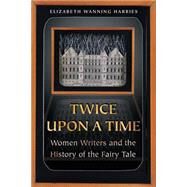Twice upon a Time
, by Harries, Elizabeth Wanning- ISBN: 9780691115672 | 0691115672
- Cover: Paperback
- Copyright: 9/2/2003
Fairy tales, often said to be ''timeless'' and fundamentally ''oral,'' have a long written history. However, argues Elizabeth Wanning Harries in this provocative book, a vital part of this history has fallen by the wayside. The short, subtly didactic fairy tales of Charles Perrault and the Grimms have determined our notions about what fairy tales should be like. Harries argues that alongside these ''compact'' tales there exists another, ''complex'' tradition: tales written in France by the conteuses (storytelling women) in the 1690s and the late-twentieth-century tales by women writers that derive in part from this centuries-old tradition. Grounded firmly in social history and set in lucid prose, Twice upon a Time refocuses the lens through which we look at fairy tales. The conteuses saw their tales as amusements for sophisticated adults in the salon, not for children. Self-referential, frequently parodic, and set in elaborate frames, their works often criticize the social expectations that determined the lives of women at the court of Louis XIV. After examining the evolution of the ''Anglo-American'' fairy tale and its place in this variegated history, Harries devotes the rest of her book to recent women writers--A. S. Byatt, Anne Sexton, Angela Carter, and Emma Donoghue among them--who have returned to fairy-tale motifs so as to challenge modern-day gender expectations. Late-twentieth-century tales, like the conteuses', force us to rethink our conception of fairy tales and of their history.







